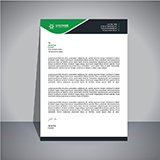For an insurance agent, failing to pick up on a serious coverage gap in a client’s liability policy is a bad mistake. Unfortunately for one Pennsylvania agency, it made another mistake that created its own gap in coverage.
In December 2002, the agent sold a commercial general liability policy to a beer distributorship. Like most CGL policies, this one excluded liquor liability coverage if the named insured was in the business of distributing alcoholic beverages. The agent did not obtain liquor liability insurance for the business. The policy apparently renewed three times with no change in this area.
In March 2006, an intoxicated teenager drove his car into a pole, killing a female passenger. The girl’s father sued the driver and the beer distributorship, accusing the distributor of selling beer to an underaged individual, who gave it to the car’s driver, causing his intoxication. The business submitted a claim to its CGL insurer, which successfully filed suit for a declaration that it did not have to provide coverage.
In late 2007, the business sued the insurance agent for failing to obtain liquor liability coverage for it. The agent notified his E&O insurance carrier. He had first purchased coverage, on a claims made and reported basis, from this carrier effective January 1, 2006. The carrier renewed the policy for the 2007 term, so the policy was in force when the agent was sued by his insured.
The E&O carrier sought a court ruling that it had no obligation to defend or indemnify the agent against the beer distributor’s suit. The agent and the distributor argued that the E&O policy had a retroactive date of November 24, 2004, and the agent’s failure to insure the business for liquor liability occurred on the date of the car accident in 2006. The insurer claimed that the retroactive date was January 1, 2006 and the wrongful act occurred at least in part in 2002.
In late 2008, the trial court ruled in favor of the E&O carrier, and the agent appealed.
The policy’s insuring agreement said that it applied to a “wrongful act” that “occurs wholly after the Retroactive Date.” It defined “wrongful act” in part as “(a)ny actual or alleged negligent act, error or omission.” Lastly, an endorsement defined “retroactive date” as that shown in the agent’s immediately preceding E&O policy or the policy that “immediately preceded” the date the agent was added to the carrier’s policy.
If there was a lapse in coverage, the retro date was the inception date of the agent’s coverage with the carrier. The agent had prior coverage from another carrier but did not renew the policy in November 2005. He went without coverage for a five-week period before his coverage with the new carrier started.
While the agent argued that the phrase “immediately preceded” was ambiguous, the court disagreed and ruled that the retroactive date was January 1, 2006. It also found that the “wrongful act” occurred on the day that the agent first failed to obtain liquor liability coverage for the distributor, and that was “at the earliest in the fall of 2002 and at the latest during the last policy renewal in December 2005.” Therefore, the wrongful act occurred before the retro date, and the carrier’s refusal to provide coverage was correct.
It appears that the agent made two key errors here. One was being unaware of the liquor liability exclusion in the CGL policy. Because he was unaware of the exclusion, he did not attempt to obtain a liquor liability policy.
Second, he let his E&O policy expire without replacing it. This reset his retro date, costing him coverage for any wrongful acts occurring after November 2004. Arguably, he needed the coverage in 2002, since the court ruled his wrongful act may have occurred then. No agent can afford to go without E&O coverage, even for a few weeks.
Thorough knowledge of insurance products, coupled with the use of coverage checklists, is essential to preventing these types of errors. Agents who know coverage forms and their exclusions, and who know what questions to ask, may not be able to avoid uninsured losses entirely, but they will be able to defend themselves against subsequent E&O claims.















